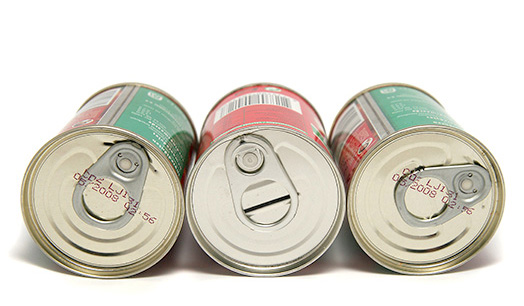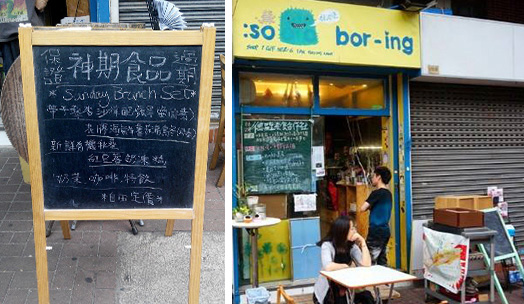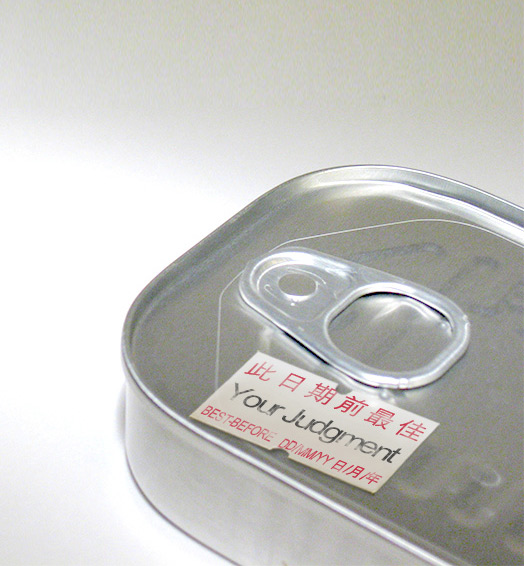
Different Shades of Expiring
‘I do not know since when everything has started to have a date affixed to them. Mackerels would expire, canned meat would expire and even cellophane wraps would expire. I’m beginning to wonder if there is anything in this world that wouldn’t.’ (Takeshi Kaneshiro’s monologue in the movie Chungking Express)
But is it how things really are in life? How do the ‘dates’ on every item come about? What does ‘expiry’ refer to? According to whom?
Label literacy
Most people would have no qualms throwing foodstuff away if the year, month and date on the packaging are found to have passed the expiry period. But upon careful scrutiny, you will notice that the food labels, in fact, carry two types of dates: the ‘use-by’ date and the ‘best-before’ date.
The ‘use-by’ date indicates that health risks may arise from consumption after this date. In Hong Kong, the bulk of products like fresh meat, dairy milk and infant formulas are labeled with such a date. However, the ‘best-before’ date is different. As its name suggests, it means that the product retains what the producers believe to be its optimal quality when consumed before the date indicated. After this date, the food item is still safe to consume, even though its flavours and texture may have been slightly compromised.
Celia Lau, one of the founders of the Facebook Group ‘Afterbeststillgood’, feels that despite serious food wastage in Hong Kong, plenty of people still cannot tell the difference between the two ‘expiry dates’ and are tossing out food that is edible. Hence, Celia and her teammates hope that more food-wise information could be disseminated through ‘Afterbeststillgood’ and the public’s understanding of food can be enhanced.

Who set the dates?
Celia said that the definition of ‘best-before’ date is unclear and not substantiated by any scientific procedures. ‘Some manufacturers follow the mainstream practice of designating a half-year expiry period when they see other products similarly labeled. Other expiry dates are fixed out of shelving consideration. If the expiry period is too short, the products would expire before they reach the supermarkets, with obvious consequence. Hence, manufacturers set longer expiry periods. Other expiry dates are haphazardly determined. For example, pineapple tarts producers would leave the pastries aside for one to a few months to see how long they would take to turn moldy. The majority of manufacturers do not carry out food testing to validate expiry dates due to the prohibitive costs involved.

Therefore, ‘best-before’ expiry dates do not provide much reference value. Celia reiterated: ‘Whether food items are safe for consumption is not determined by any dates. Do not let the dates on food labels influence your attitude towards your food. Instead, you should smell and observe to see if its quality has deteriorated. What you should do is exercise your own judgment.’
In the middle of 2015, Celia and her friends opened a restaurant named after her Facebook Group, where dishes prepared from food ingredients past their best-before dates are served. Through this initiative, the team hoped that the public could reflect on whether the issues of expired or near-expired food are totally resolved when donating to the needy. Celia said: ‘If we ourselves are reluctant to eat it, then what right do we have to donate the uneaten food to less well-off people? That would be so unfair.’
Shelf life extended
Globally speaking, the European nations are leading the way in minimizing food wastage, both at the institutional level and in the civil society.
In February this year, France became the first nation to legislate against food waste, banning supermarkets from dumping unsold food. Italy will also be passing a legislation to pave the way for food donations from the supermarkets. In the UK, there is a popular online shop called Approved Food, which sells food products expiring soon or past their best-before dates at low prices. Several types of pay-what-you-want restaurants have also sprung up across Europe, serving a list of dishes prepared from leftover or soon-to-expire food ingredients.
Celia views these developments as part of a larger global consumer movement targeting not only food wastage, but also the more fundamental questions of how we should live and how our environmental resources should be used. ‘We undertake our work not to win applause or court fame. We only want to prove that you can put into action whatever changes you want to make.’ She believes that every individual can contribute to this food campaign, at any point along the production-to-consumption chain or at any level, from drawing up legislations to simply making the effort to understand the implications of food expiry dates.
So, a possible reply to Takeshi Kaneshiro is: whether something is considered expired or not is entirely up to you to decide.



